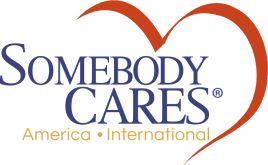Washington Times Article on Grassroots Panel Meeting 8/25/06
August 25, 2006 • By Audrey Hudson THE WASHINGTON TIMES
Government at all levels is preparing to respond to hurricanes and other disasters, but the real rescue missions likely will be carried out by corporations and churches, a panel said yesterday.
“We are so Washington-centric that we pay almost no attention to how Americans respond to disaster,” said James Jay Carafano, a Heritage Foundation fellow who moderated yesterday’s panel discussion on “Grassroots Response: Citizens Taking Care of Citizens During Disasters.”
Panelists from the private sector said they are able to respond quicker to disasters such as Hurricane Katrina than most government agencies, including the Federal Emergency Management Agency (FEMA).
When a Texas fire chief needed food and water for about 3,000 people after Katrina struck, a network of ministries responded immediately. “We drove our caravan past 100 FEMA trucks sitting and waiting on instructions,” said J. Doug Stringer, president of Turning Point Ministries and founder of Somebody Cares America.
“Our hands were not tied; we were able to do what our hearts told us to do,” Mr. Stringer said. “We aren’t boxed into a system. We had citizens caring for citizens, and it didn’t matter who got the media sound bite or who got credit. It was about helping people with real needs.”
James S. Gilmore III, former Virginia governor and chairman of the Gilmore Commission, which studied terrorist threats and disaster readiness, said natural disasters require a response strategy that is national, not federal.
“If you continue to focus on the federal role exclusively, you will never prepare the nation,” said Mr. Gilmore, a Republican. “We’ve been trained since the Great Depression that if we just hang around long enough, the federal government will come and bail us out because they have all the money,” Mr. Gilmore said. “Until we break away from the
concept that everything has to be federal, we’ll be in trouble.”
Lisa Hamilton, public affairs manager for United Parcel Service of America (UPS), said that after Katrina struck last year, corporations contributed $1.2 billion in disaster relief, of which 254 companies contributed $1 million each. That made it the “single largest outpouring of private sector help in U.S. history.”
“We are learning how to collaborate, rather than compete in times of disaster,” Miss Hamilton said. UPS put its own system to work and pledged cars, trucks, airplanes and
people toward the hurricane-relief effort, and shipped four million pounds of goods, including a mobile hospital and water-treatment system, to affected states.
“Throughout corporate America, we saw an outpouring of good will that was as creative as it was generous,” Miss Hamilton said. One pizza chain passed out pizzas in Biloxi, Miss., and one bank put $1,000 in each of its customers’ accounts.
“The great thing about community is you can be nimble,” Mr. Gilmore said. And when corporations or the National Guard respond, Mr. Gilmore said it is essential they be used effectively. “We can’t be told clothing cannot be distributed or the National Guard turned back,” Mr. Gilmore said.
